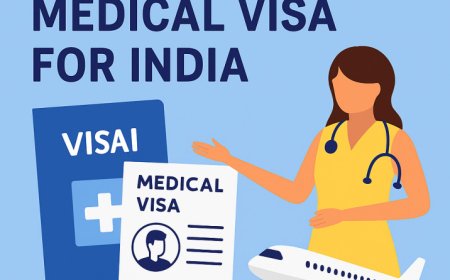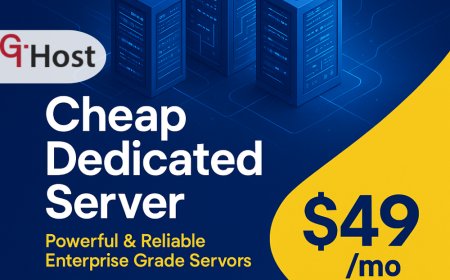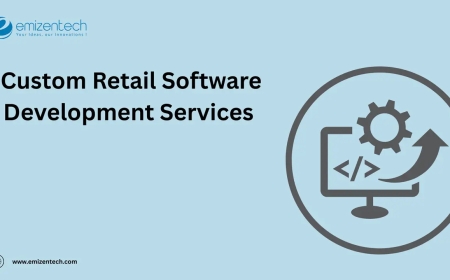Global Cloud Platforms vs Indian: Which is Best for Healthcare?
Compare global and Indian cloud platforms to find the best fit for healthcare needs—security, compliance, performance, and cost-effectiveness.

The healthcare industry is undergoing an unprecedented digital transformation. Innovations such as electronic health records, telemedicine, health analytics, and AI-powered diagnostics are reshaping how care is delivered. At the center of this evolution lies a critical decision point: the role and reliability ofGlobal Cloud Platformsin supporting this rapid technological shift.
Where should healthcare data be stored and processedon Indian cloud platforms or Global Cloud Platforms?
In a sector where data security, compliance, and privacy are paramount, selecting the right cloud provider is more than a technical decisionits a strategic one. Lets explore the benefits and drawbacks of both Indian and global cloud platforms in the healthcare context.
Why Cloud Computing Matters in Healthcare
Before comparing providers, its essential to understand the critical role cloud platforms play in healthcare operations:
-
Real-Time Accessto patient records and histories
-
Scalabilityto manage vast volumes of imaging and medical data
-
Robust Security & Disaster Recoverysystems
-
Interoperabilitybetween devices and healthcare systems
-
AI & Analyticsto enable predictive diagnostics and personalized care
The Role of Global Cloud Platforms in Healthcare
Global Cloud Platforms like Amazon Web Services (AWS), Microsoft Azure, and Google Cloud lead the industry and offer specialized healthcare solutions, including:
-
HIPAA-compliant services
-
Advanced AI toolsfor diagnostics and imaging
-
Global data exchange frameworks
-
Support for FHIR (Fast Healthcare Interoperability Resources)
Pros of Global Cloud Platforms
-
High-End Security & Compliance: Certified for ISO 27001, HIPAA, and GDPR
-
Unmatched Scalability: Ideal for multinational hospitals and healthtech startups
-
Innovation at Scale: Access to cutting-edge AI, machine learning, and analytics tools
Potential Drawbacks
-
Data Residency Issues: Storing data outside India may raise regulatory concerns
-
Cost: Can be expensive for small clinics or startups
-
Jurisdictional Limitations: Less control over where data is stored and how its governed
Indian Cloud Platforms in Healthcare
Indian providers like CtrlS, NxtGen, ESDS, and Netmagic are becoming go-to choices for local hospitals, diagnostic centers, and telemedicine startups.
Pros of Indian Cloud Platforms
-
Data Localization: Compliance with Indian regulations (MeitY, RBI, CERT-IN)
-
Local Support: Quick and personalized service
-
Cost-Effectiveness: Affordable solutions for regional hospitals and clinics
-
Widespread Infrastructure: Physical data centers in major Indian cities
Challenges to Consider
-
Limited AI & Analytics Tools
-
Smaller Global Footprint
-
Less Mature Ecosystemcompared to giants like AWS or Azure
Choosing the Right Cloud Platform for Healthcare
Opt forGlobal Cloud Platformsif:
-
Youre developing a global SaaS or healthcare product
-
Your operations require cross-border data access and compliance
-
You rely on advanced AI or need scalable infrastructure
Opt forIndian Cloud Platformsif:
-
Your focus is primarily the Indian market
-
Regulatory compliance and data localization are top priorities
-
You value affordable pricing and dedicated local support
The Hybrid Approach: Best of Both Worlds
Many healthcare organizations are now adoptingmulti-cloud strategies:
-
Store sensitive patient dataon Indian platforms to meet compliance standards
-
Leverage global platformsfor AI analytics, telemedicine apps, or R&D workloads
This hybrid setup offers both security and innovationwithout compromising legal obligations.
Final Thoughts
In healthcare, trust is everythingespecially when it comes to handling sensitive patient data. Whether you choose Indian providers or Global Cloud Platforms, ensure your solution supports:
-
End-to-end encryption
-
Compliancewith local and international regulations
-
Scalabilityas your practice or product grows
-
Reliable disaster recovery and uptime
Ultimately, the right cloud platform should align not only with your technical needs but also with your commitment to compliance, patient safety, and ethical data management.







































